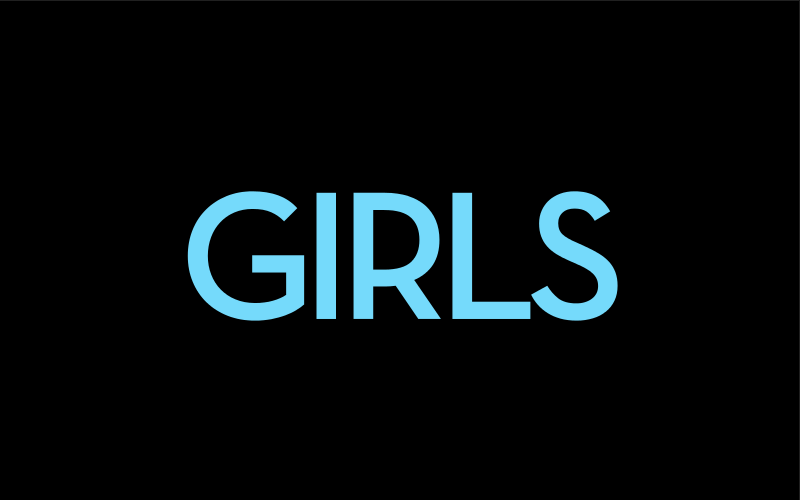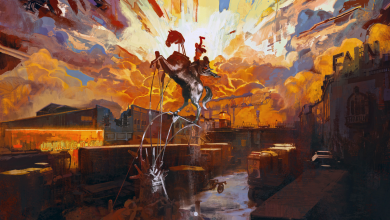An Evening with Lena Dunham, and the Girls Behind Girls
Last Wednesday, on February 11th, I was given the opportunity to sneak into and therefore sit in on a UCLA Film and Television Graduate Program class. The UCLA Producers Program hosts a Network Television Management Course with acclaimed producer and professor Tom Nunan. This course features weekly guest speakers from HBO’s behind the scenes team and this week featured the producers of Girls.
The special guests were Girls executive producers Lena Dunham, Jenni Konner, Ilene Landress and the director of HBO Original Programming, Kathleen McCaffrey. As they each discussed their careers and the entertainment industry, feminist undertones happened to squeeze their way into the conversation.
Lena Dunham is the executive producer, writer, director and star of Girls, and the author of the New York Times Best Seller Not That Kind of Girl: A Young Woman Tells You What She’s Learned. Merely at age 28, Dunham has been nominated for eight Emmy Awards and won two Golden Globes for Girls. She is also the first woman to have won a Director’s Guild Award for “Outstanding Director in a Comedy Series.”
Lena is young, sharp and driven, and she is not apologizing for it.
Lena Dunham elaborated on her relationship with the creative process, as characterized by “moments of extreme lack of confidence” that she combats by writing through them. Lena wrangles with social expectations and how they prevent Hannah Horvath, her own character on Girls, from being intrinsically Hannah. The challenge is working through the folds of a character and breaking into their imagined world. Lena expressed gratitude for her support system – a room full of writers that ease that process.
When asked for her personal favorite work, Lena replied that all her projects are intertwined. She explained that there is something addictive about the control of student films and juggling the many roles you take on.
“It’s amazing how athletic your thinking becomes. The writing is where the endless possibility and joy is before other people come and fuck it up.”
This intrapersonal connection is why Lena most enjoyed writing her book, viewing the writing process as an authentic, direct line to the audience, whereas with directing it has been difficult to see her vision come to fruition.
As so much of the television industry has changed, regarding pre- and post-Internet age, the producers of Girls are now operating in a different landscape. Lena draws her role models for her Hollywood career from various individuals “exploring the correct medium for a story,” including names like Nora Ephron and Elaine May. Lena admits that when she was younger she developed a taste for what she liked and watched everything “fast.” This was followed by a joke about sex and brought back to the topic as she added that Nikki Giovanni and Sylvia Plath were just as much her role models as Steven Spielberg was. Lena values voice and personal expression over names in entertainment.
“I love storytelling, not necessarily the industry.”
Lena and her “best friend, partner, other half and lover,” Jenni Konner laughed about their obsession with Shonda Rhimes, and how they have taken it upon themselves to stalk the other females in the industry to make them their friends. “Shonda is opening doors right and left. She walks in with a gentle, but iron fist,” Konner raved. Shonda was praised by the ladies on the panel for the resilience of her voice and her endeavor to hire women of color.
Lena also admires Mindy Kaling, acknowledging that she was a main impetus in her book writing endeavors, showing that a powerful, comedic woman can really write a book.
Amongst the other female leaders of comedy, the panel discussed the passing of the royal comedic torch when Tina Fey presented Lena’s Emmy. Tina sent Lena pencils that say “Lena Dunham is a big deal,” causing Lena to fangirl for days on end over one of her main inspirations.
Throughout the panel, Lena winked at the audience and freely gave air hugs, even after the class was told not to fangirl by any means.
The panel then transitioned to the classroom setting, where Nunan played clips of Girls, followed by specific questions pertaining to each scene. The panel discussed the episodes in detail, mentioning the creative process integrated in the production of each scene.
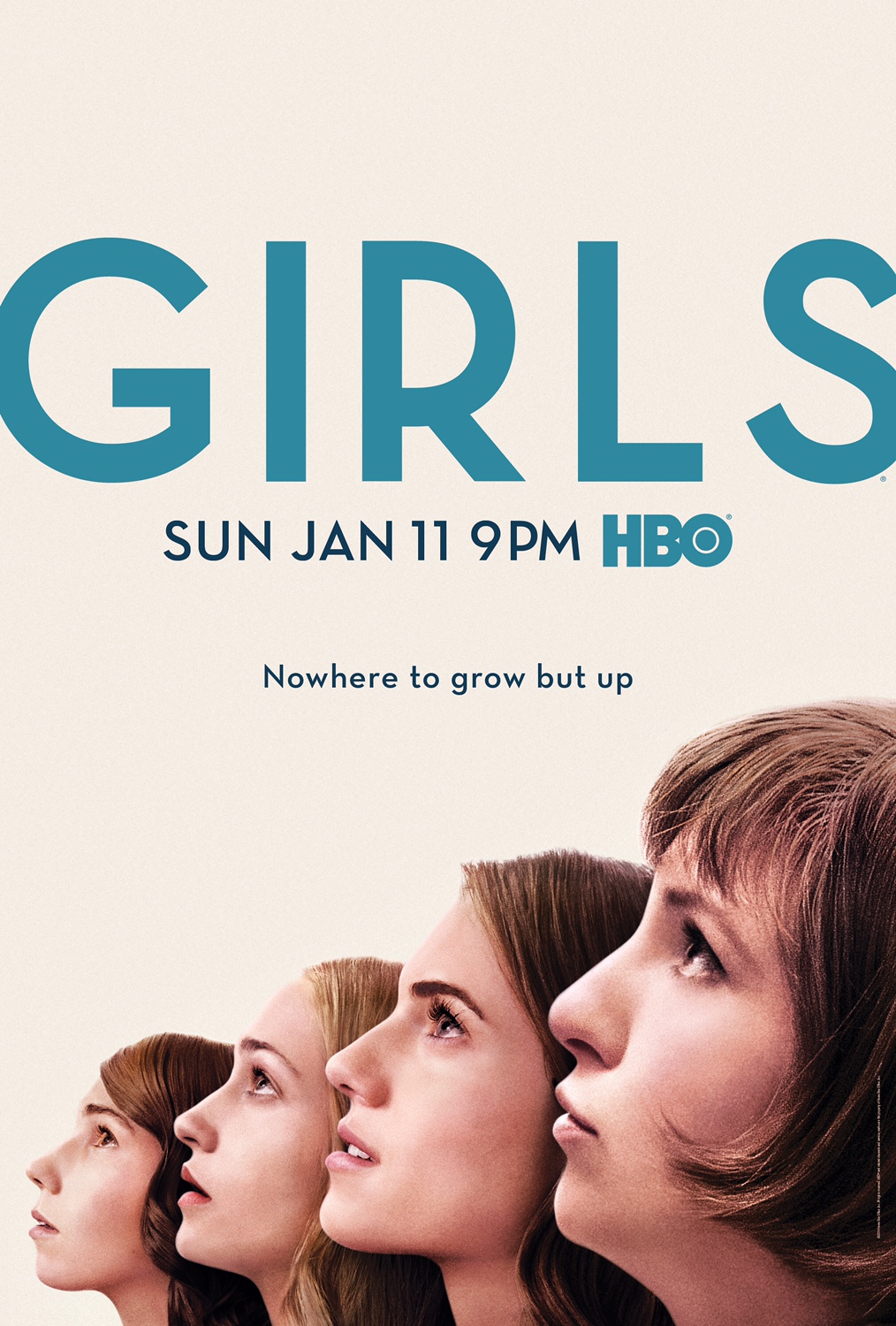
Season 4 Episode 4
Hannah speaks with the head of the acclaimed Iowa Writing Program, hoping to be kicked out.
This exhibits how Hannah is constantly looking for a source to rebel against. Lena compassionately explains that Hannah is an adult now and it is eye opening in that now she cannot even get kicked out of things anymore.
Girls has clearly come a long way since Kathleen picked up Lena’s vision several years ago. Kathleen was a young, new executive who truly enjoyed Lena’s presence and decided to call her asking to buy a script, one of her first decisions of power in her new HBO position.
Nunan asked Lena where she truly found her voice – whether in her book or in her scripts.
Lena said, “Scripts are my writing voice, versus who I am.”
Lena commented on the natural progression of characters’ growth and change. “There’s a bedrock of brokenness in Hannah’s character, an unexamined narcissism I see in myself, but Hannah is evolving.”
Jenni interrupted, as a connoisseur of Lena’s dialect, exclaiming that Tiny Furniture is the crystallis of Lena’s voice, struggling to get out.
To Lena, writing comes as second nature and is heavily influenced by aspects of others’ work that she admires.
Back in high school, Lena wanted to do something with her time and limited babysitting resources, so she decided to make Tiny Furniture. Lena comments that in her short film, the cast looks unshowered and the appeal was very ephemeral to her style. Lena attempted to make the lead her utter opposite, while maintaining her chic, quirky style.
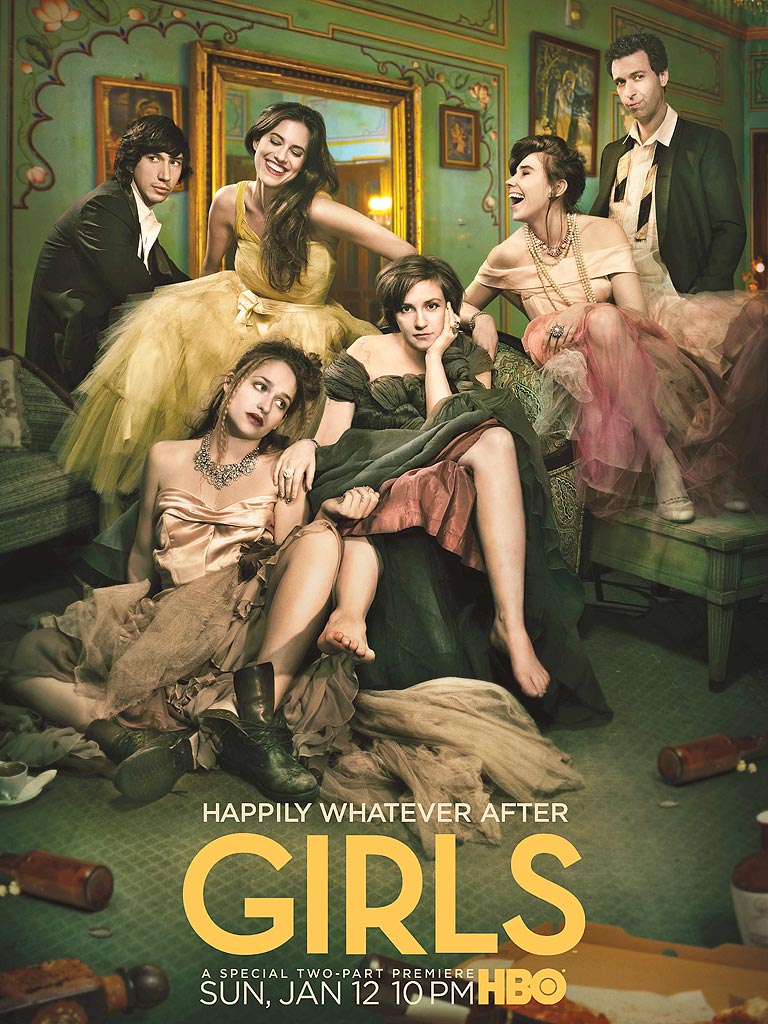
Season 1 Episode 1
Hannah is having dinner with her parents at a fancy Italian restaurant and is dramatically refusing to be cut off financially.
The panel reminisced on the process leading up to the creation of the pilot. Kathleen read the initial script and in a mesmerized state, ordered a pilot that was immediately picked up. Jenni explains, “you never stop working with Judd.” It’s clear that Judd helped Girls find their voice.
Jenni explained why the pilot was such a success. “In the television industry, you pitch something to a network, they buy it and create an idea for what they think the product will look like. Then you bring in the script, and it’s not what they think. In filming, the network is even further away from what they asked for. You’re setting yourself up for a weird disconnect.
For Girls, there already was the template of what Lena was producing. Tiny Furniture was Lena’s vision, even visually using the exact same colors… Everyone loves that.”
Ilene Landress, deemed the “queen of production,” was immediately sold on the script after just a phone call and reading, which shocked the girls, who were simply expecting a recommendation.
Girls is filmed on a rather unusual production schedule. Other than the warehouse rave, there are barely any extras. Six days is the usual span of filming for an episode, with their longest running shoot time at ten days. Also, in contrast to Ilene’s work on Sex and the City, Hannah was often dressed down rather than dressed-up, as usually is the case in television.
Lena interjected, “I’m very beautiful, it’s hard.”
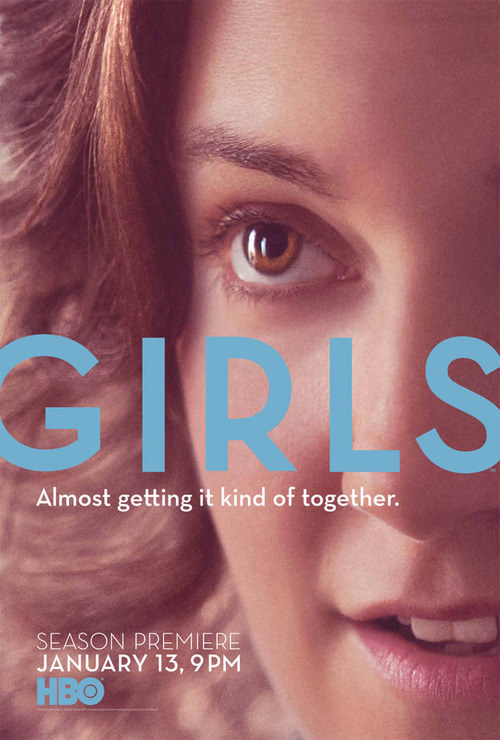
Ilene, Jenni and Kathleen commented that Lena’s adeptness in film to every inch of her vision inclines the production team to take risks with her as a filmmaker.
Lena is a visionary in her writing and directing skills. The others on the panel raved on her insanely elaborate casting breakdowns – often including specific facts such as “likes autumn leaves, baby pigs and cheerios.” Perhaps this can be attributed to her free-spirited parents. Lena’s parents, Laurie Simmons and Carroll Dunham, are alternative Brooklyn artists, who she claims were almost “too understanding” of her decision to pick up and join the entertainment business. From birth, Lena was practically waiting to see which creative outlet she would choose.
Season 1 Episode 7
The four lead characters attend a warehouse rave and Hannah spots Adam on the dance floor.
This is the first episode Jenni and Lena collaboratively wrote in the system they use today. A few weeks before the writing begins, Jenni and Lena provide a ten page document stating ideas of where the characters might go as a jumping point, before the whiteboard is brought out with the writing team. This idea stems from Judd’s beloved practice of writing down 50 “things” your characters could do, then writing 50 more.
“Hannah does cocaine came out of that,” Lena said. The two write individual scenes of the same episode on their laptops in a hotel room, while Kathleen sends pancakes and eggs. Then, they exchange computers and begin working on each other’s scenes. Lena claims this episode’s creation was the day “her black heart cracked and she could let love in.” The two raved about their compatibility and Lena elaborated that letting Jenni into her own little world brought a new perspective to the space she had already conquered. This brought Lena relief and eased the creative process. The two also share a desk, facing each other at all times. While Lena’s desk is immaculate, Jenni’s is piled with stuff Lena sometimes likes to sift through to make some room.
This particular scene depicts the girls standing in a line, in a Sex and the City fashion, while typically Lena consciously attempts to keep the girls separate. Lena explains that this is how she emulates the way in which people truly act. While Sex and the City features four best friends constantly having the time to see each other, this is more natural as they hang within themselves in smaller groups. “It’s more of a network of people interlocking than four ride or die bitches,” Lena said.
Lena, however, sometimes has her particular inexplicable quarrels in the writing schema. For instance, Lena wrote an “inexplicable voice over” in Season Two, “that was simply rejected” by Jenni. This can be attributed to her incessant watching of Grey’s Anatomy, Jenni laughed.
Jenni and Lena reiterated that they wanted to work next with “really complicated women,” like Shonda Rhimes and Tina Fey. Jenni wholeheartedly explained this is why she had Lena watch the whole series of Grey’s Anatomy. Lena added that there should be a network of women supporting each other in the industry and stressed the “essentiality of a sense of comradery amongst women” rather than competition.
The title of the Girls series, a heavy topic of debate in the media for its diminutive connotations, is largely loved by the production team.
Lena explains it shows the girls’ refusal to acknowledge themselves as adults. This was actually Judd’s idea, and both Ilene and Jenni agreed it was excellent. Jenni remarked, “Since I went to a progressive, leftist school, I was calling myself a woman at twelve and a half, so I was excited about the title.”
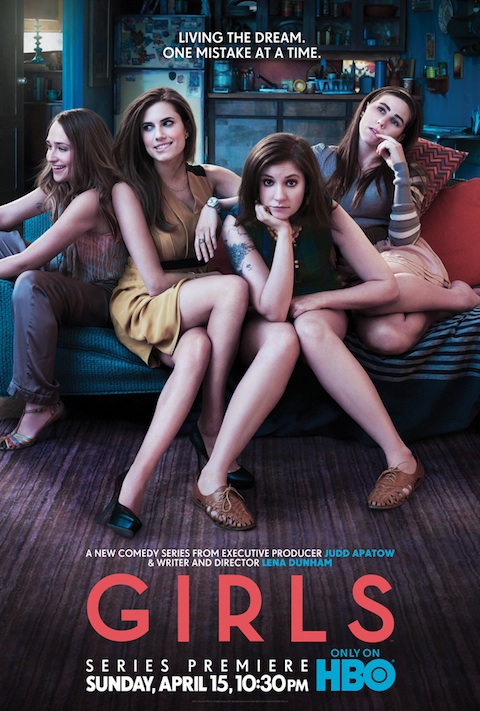
The actors of Girls largely influence the way in which Lena and Jenni write the characters.
“Adam was not Adam before Adam was Adam,” Lena said. “Adam was supposed to be the “ass hole jock fuck buddy but he turned out to be soulful, once Driver took on the part,” Lena explained. The face behind the character of Marnie Michale, Allison Williams, had the tremendous skill of singing, but in doing so with the “cringiest” of styles as Jenni put it, Lena decided to subtly add this into the role.
This decision was made when Allison did a karaoke version of Kanye West’s “Stronger,” automatically replacing the lyric “You can be my black Kate Moss tonight” with “I can be your white Kate Moss tonight.” Lena commented, “It was deeply unconscious and perfect and weird. We were like ‘oh shit we have to do this all the time.’” This exemplifies how Lena capitalizes on the idea that looks can deceive, just as Allison’s character sleeps with other girls’ boyfriends, to make her characters interesting and relatable. Internally, Hannah has a “moral compass about her life on Earth versus Marnie,” Lena said. As far as Hannah’s deviations might take her, she will ultimately always end the episode as an innately good person.
Lena discussed the rather unusual experience of casting her love interest on the show: Adam Sackler. Firstly, he had the same name as the character. Adam Driver wooed the production team in his audition, charismatically flirting with Lena while killing the audition.
“The casting room was like one of those old Beatles videos where you can’t hear the concert because all the girls are screaming,” Jenni recounted of their excitement in finding the perfect fit for the role. Lena continued in her joshing relationship with Adam, even wearing her grandmother’s dog tags the first day to set, because she knew from her producers that he does not appreciate speaking of his time in the marines.
When asked if there was any idea as to where the characters are heading, the girls nonchalantly revealed that the ending had been decided from the very beginning. Lena and Jenni explained that Girls is not Breaking Bad, and spoilers are not their object.
“The ending is the characters becoming who they are so hopefully you can guess, but it’s in a surprising way,” Jenni said.
Season 2 Episode 5
Patrick Wilson plays a 40-year-old man who witnesses a Hannah breakdown after sleeping with her.
This is an example of a bottle episode – meaning the production team consolidates costs by shooting an entire episode in one location. While most television series successfully cut costs, Girls typically ends up spending twice as much because of their mastering of the intimacy established with the characters in these scenes.
Director Richard Shepard asked for a day of rehearsal before shooting this episode. For Girls, this was a new concept because typically the characters do a read-through and go straight to camera. However, in this scene, the rehearsal allowed for mastery of this malleable space to make Hannah truly unpackage her character’s mindset. Lena cited this episode as one of her favorites, alongside the other bottle episode in the Hamptons.
Lena wrote this scene with insane precision of even the facets of the brownstone home without ever having visited the location. This skill is particular and rare in the entertainment industry.

These exact skills are what brought Lena to encounter sunshine stealers, as she termed the phenomenon in her book. Jenni explained, “Lena had all this light and they [older males in entertainment] were leeching.” Lena is candid about sex, which allowed for an uneasy breaching of barriers between her older male counterparts in the industry and herself. As a woman, Lena explained that men will attempt to make you feel as though you are in the industry by accident or by chance, and that you need to be protected and taken care of.
“There’s unsolicited advice and attempts to take over your spirits, but remember your own internal compass is powerful and something to be acknowledged,” Lena said over whistles coming from the audience in accordance with her stance on female empowerment in media.
Lena said that this chapter was a warning about the industry versus man blaming. She dropped the topic with, “Put blinders on and keep moving forward.”
Nunan asked if the Girls staff consisted of a lot of men, accordingly. The panel sharply said no and listed off the number of women they have actively recruited over the years.
Season 2 Episode 9
Adam forces his new girlfriend into submission while having sex with her.
Nunan explained that in Lena’s book, she refuted being called brave merely for getting naked on screen, when really the compliment is due to her daring complex in scenes. Lena is utterly consistent with her characters. “We had explored sexuality but we had not looked at how Adam has a darkness that he is always fighting and there isn’t always consensual sexual exploration. It was exciting and challenging,” she reflected.
Lena brings her audience to the dark places you don’t want to go as a fan.
This episode made some fans uncomfortable with traveling alongside Adam for the rest of the season, while others were interested in exploring Adam’s dark side, Lena elaborated.
None of the panelists really ever had a Plan B to entertainment. Jenni recounted her experience of working on the tract for becoming an executive, while truly desiring to become a writer. She quit her job and became a waitress so she could achieve mental rest during the day and go back home to work for what she truly wanted at night.
“There are moments of choice that you will encounter. If you’re that close to the same kind of energy, you’re not going to be the one to go home and write at night.” Ilene jokingly reminded them that she went to graduate school to study nutrition. On a more serious note, Ilene then warned against being locked down by golden handcuffs – a Hollywood term referring to taking on a job you are uninterested in solely for the monetary benefits, then becoming trapped into that career because of the steady income flow but ultimately being unhappy with your life.
Nunan said, “Dreams don’t die. Don’t stamp them out with money.”
Season 3 Episode 12
Hannah’s mother and two aunts visit Hannah and her cousin at the same hospital where Hannah’s grandmother is dying upstairs and quarrel over Hannah’s car accident and their mother’s imminent death.
This episode exemplifies how Lena beautifully writes multiple generations of women.
Keeping in mind that Lena is the creator of each scene before stepping foot in front of the camera, Nunan inquired if Lena ever gets lost in her head about this.
Lena replied that she mentally prepares for a scene, particularly with Becky Ann Baker who plays her mother, with her lines and movements fully memorized so she can focus on absorption. Lena admires Becky for her presence on set. “[Becky] doesn’t go for the laugh. She has taught me how to be a constructive scene partner. For monologues, she’s still in communication with a partner and not thinking that this is her big scene.”
Any final advice?
Ilene said, “I just ran and did it; don’t wait the whole path. There’s no barrier with film anymore, make small films on an iphone, just create something.” Kathleen said, “The more willing you are to show yourself for others to see, the more good things will come from the world of entertainment.”
Lena said, “Hire women.”

